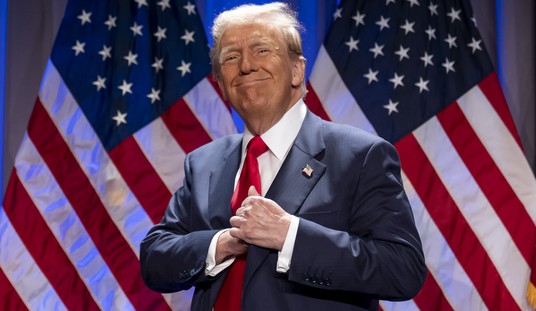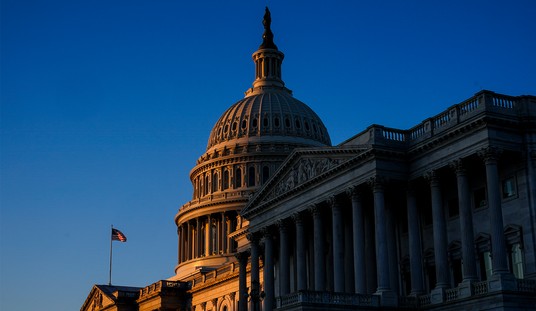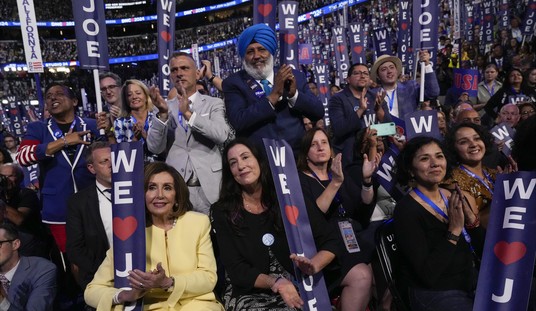Did Democratic presidential candidate Barack Obama attempt to dally in U.S. foreign and military policy during his first trip to Iraq in July?
According to Iraqi Foreign Minister Hoshyar Zebari in Amir Taheri’s op-ed in Monday’s New York Post, Obama used his trip to privately lobby Iraqi government officials to delay an agreement that would reduce the number of American soldiers in Iraq, while at the same time publicly calling for a unilateral withdrawal.
The delay was a “key theme” of his discussions with Iraqi leaders according to Zebari, and Obama reportedly asked those leaders to delay an agreement until after the U.S. presidential election. Zebari claimed that in doing so, Obama attempted to argue that it was not in Iraq’s interest to negotiate with the current adminstration, and insisted that the U.S. Congress should be involved.
During the same visit to Iraq, Obama may have also tried to convince a series of American commanders, including General David Petraeus, to offer a “realistic withdrawal date” to pull soldiers out of Iraq. All commanders reportedly declined.
General Petraeus is presently engaged in a change of command in Iraq, leaving Lieutenant General Ray Odierno in charge of Coalition forces as Petraeus is promoted to lead U.S. Central Command, overseeing both the Afghan and Iraqi campaigns. Pajamas Media was unable to confirm through official military channels if Obama did press U.S. commanders for a withdrawal date, and considering the military’s duty to remain apolitical they may not be free to even confirm or deny such a claim.
When asked for comment, the duty officer for the Multi-National Force Iraq Press Desk candidly explained via email that:
I truly do not know the answer to this question and would not expect to be able to find out if this happened or not. The military is not a political group. We take our direction from our current commanders, which Mr. Obama is not one of. He may have had discussion with senior military leaders while he was here but the topic of those discussion were not made public by MNF-I.
If the claims in the article are correct, Barack Obama was telling Iraqis to keep the number of American troops at current levels, while pressuring American officers for a withdrawal date and telling the far left anti-war base of his supporters that he was pledged to a nearly unconditional withdrawal.
But before we begin to dissect these claims, and to be completely fair to Senator Obama, it is important to note that the author of the Post article is Iranian-born writer Amir Taheri. Taheri has had significant credibility problems in the not too distant past, claiming in a Canadian newspaper that Iran was implementing a system of color-coded badges that religious minorities would have to wear, evoking imagery of the Nazi Party in Germany more than six decades ago. That claim turned out to be completely false. In his current article in the New York Post, however, Taheri directly quotes a named Iraqi government official, lending the claim at least the appearance of more credibility.
The only response to the article by the Obama campaign thus far has been an unnamed staffer accusing Taheri of confusing the Status of Forces agreement (which defines legal protections for U.S. military personnel and property in Iraq) with a Strategic Framework Agreement, a much broader document.
Curiously, the New York Post reports that the Obama campaign has not called the editorial department to ask for a correction or retraction of the Taheri article. The Obama campaign has also refused to respond to requests by Pajamas Media to confirm or deny the story. For the time being, let’s interpret the lack of a more forceful response by the Obama campaign to be acquiescence, and give Zebari, who has been the Iraqi foreign minister since 2003 (through Iraq’s interim, transitional, and permanent governments) some credit as a legitimate source.
If the claims in Taheri’s article are accurate, then Senator Obama is playing a dangerous and duplicitous game.
It would mean Barack Obama attempted to pressure American military commanders to make a declaration that he would have used as a political tool during his presidential campaign to undermine both his opponent and the current president, perhaps undermining the credibility of the U.S. military as an apolitical group loyal to the United States instead of political parties. It was wrong to attempt to put American commanders at war in such a predicament, where their words could be used against their sitting commander-in-chief as a political bludgeon. Either Obama did not think of that, or he was simply untroubled by the thought of abusing the careers of American commanders for political gain.
Obama would have used any timeline offered to shore up Obama’s support on the far left wing of the Democratic Party, a fringe that advocates an immediate withdrawal of American forces from Iraq, regardless of the resulting security vacuum or the possibilities of political and security instabilities that would be the likely result.
Many in this radicalized wing, while thankfully only a fraction of the overall party, openly desire a too-quick retreat in order to secure an American defeat and a failed Iraqi state. They would tout that as a failure of the “Bush doctrine,” specifically the part that justifies preemptive war to depose foreign governments that pose a threat to the security of the United States, even if that government is not an imminent threat.
But even as Senator Obama may have been pandering to his anti-war base by trying to pressure U.S. commanders for a withdrawal date that would be used as a political tool, he was concurrently trying to keep his same core group of radicals stirred up by attempting to slow the signs of progress in Iraq by manipulating a key statistic progressive blogs and other anti-war activists keyed on the most heavily: the number of American forces in Iraq.
If American forces began to withdraw significant numbers of soldiers from Iraq , it would undermine Obama’s core campaign message that to elect anyone else would result in the continuance of a war without end. For Senator Obama to keep his base motivated, he needs Iraq to either appear that it is either failing or deadlocked. A reduction in forces prior to the 2008 presidential election could prove damaging to a core element of his platform of “change.” If “change” in Iraq occurs prior to the November elections, a substantial reason for voting for Obama is removed.
By lobbying Iraqi leaders to keep the status quo until after the U.S. presidential election, Senator Obama would have been attempting to undermine the foreign policy of a sitting president to shore up his own political base.
In response to the Taheri article, John McCain spokesman Randy Scheunemann stated
At this point, it is not yet clear what official American negotiations Senator Obama tried to undermine with Iraqi leaders, but the possibility of such actions is unprecedented. It should be concerning to all that he reportedly urged that the democratically-elected Iraqi government listen to him rather than the US administration in power. If news reports are accurate, this is an egregious act of political interference by a presidential candidate seeking political advantage overseas. Senator Obama needs to reveal what he said to Iraq’s Foreign Minister during their closed door meeting. The charge that he sought to delay the withdrawal of Americans from Iraq raises serious questions about Senator Obama’s judgment and it demands an explanation.
It is worth noting that the McCain campaign felt the story was credible enough to release such a statement.
If this charge is false, the Obama campaign must push forcefully for and get a substantial correction, if not a full retraction of the Taheri article.
If they don’t, then longtime accusations of Obama’s naked self-interest may doom an already flailing campaign.









Join the conversation as a VIP Member